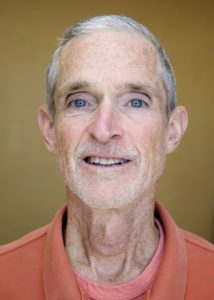by Swami Ramananda
We are witnessing an era of polarization in the United States and in many places in our world. For this reason, we have chosen to open our hearts with the practice of compassion for the month of February. Compassion is a cornerstone of all spiritual paths and a primary virtue in all faiths. It arises naturally from the awareness that we are all a part of an interconnected web of life, with the same spiritual consciousness at the heart of each being. It is a positive expression of Ahimsa, or non-harming, which is one of the most fundamental precepts in the eight-limbed path delineated by the Yoga Sutras of Patanjali.
Showing compassion for ourselves can be a simple way to begin this practice and ensure that it does not reinforce an unhealthy habit of self-denial. We can each direct this intention to the body when we practice asanas, responding to its messages instead of imposing how we would like it to be. Then we can develop that same compassionate awareness towards our minds, witnessing its moods, desires, harmful attachments and aversions, then patiently correct ourselves without unhealthy shame. When I can see, for example, how attached I am to a plan that serves me and disregards others, I realize that it’s my struggle to control things that creates tension or conflict instead of the happiness I seek.
When we are openhearted and honest about our own darkness, we develop an understanding of the whole human experience and can relate with more compassion to others as well. The Buddhist teacher, Pema Chodron, writes in her book, Start Where You Are, “The basic ground of compassionate action is the importance of working with your own unwanted, unacceptable stuff, so that when the unacceptable and unwanted appears out there, you relate to it based on having worked with loving-kindness for yourself.”
It can be particularly challenging to practice this with those whose behavior is hurtful. If we look deeply into another person’s behavior, we can often see that he or she has also been a victim and is suffering as well. When we truly consider how painful it must be for someone to hurt others, how it poisons the heart, we can wish for them to be free of suffering, even as we protect ourselves from their behavior.
It may be wise to start with simple acts of kindness for those close to us and learn from experiencing the joy of serving and giving. When we take a moment to actually feel the energy of genuine care in the heart, we will appreciate it and can gradually learn to extend it towards others. We have hundreds of opportunities every day to be a little more considerate when we are driving, listening to, or working with others. Practicing kindness in even a few of these moments has a ripple effect, softening the hearts of those around us, and makes a positive contribution to the collective consciousness of our world.
Even when we correct each other, we can wait for the right moment and speak from a baseline of care and respect. We can practice seeing others with eyes of compassion, assuming the best and forgiving acts of negligence and compulsiveness that we witness.
Ultimately, compassion represents a shift from me-centered to we-centered thinking, and the realization that loving others is loving yourself. My teacher, Sri Swami Satchidananda, beautifully articulates this essential truth when he says, “Real love is possible only when you see everything as your own expression. All others are none other than you; they just appear to be different. We always need to go beyond the name and form. When we rise above the worldly limitations, we will find that the essence is the same.”

Swami Ramananda is the President of the Integral Yoga Institute in San Francisco and a greatly respected senior teacher in the Integral Yoga tradition, who has been practicing Yoga for over 35 years. Ramananda offers practical methods of integrating the timeless teachings and practices of yoga into daily life, and transforming the painful aspects of human experience into steps toward realizing one’s full potential.
He leads beginner, intermediate and advanced level yoga teacher training programs in San Francisco, and offers a variety of programs in many locations in the U. S., Europe and South America. Ramananda trains Yoga teachers to bring Yoga into corporate, hospital and medical settings and has taught mind/body wellness programs in many locations. He is a founding board member of the Yoga Alliance, a national registry that supports and promotes yoga teachers as professionals. His warmth, wisdom and sense of humor have endeared him to many.

